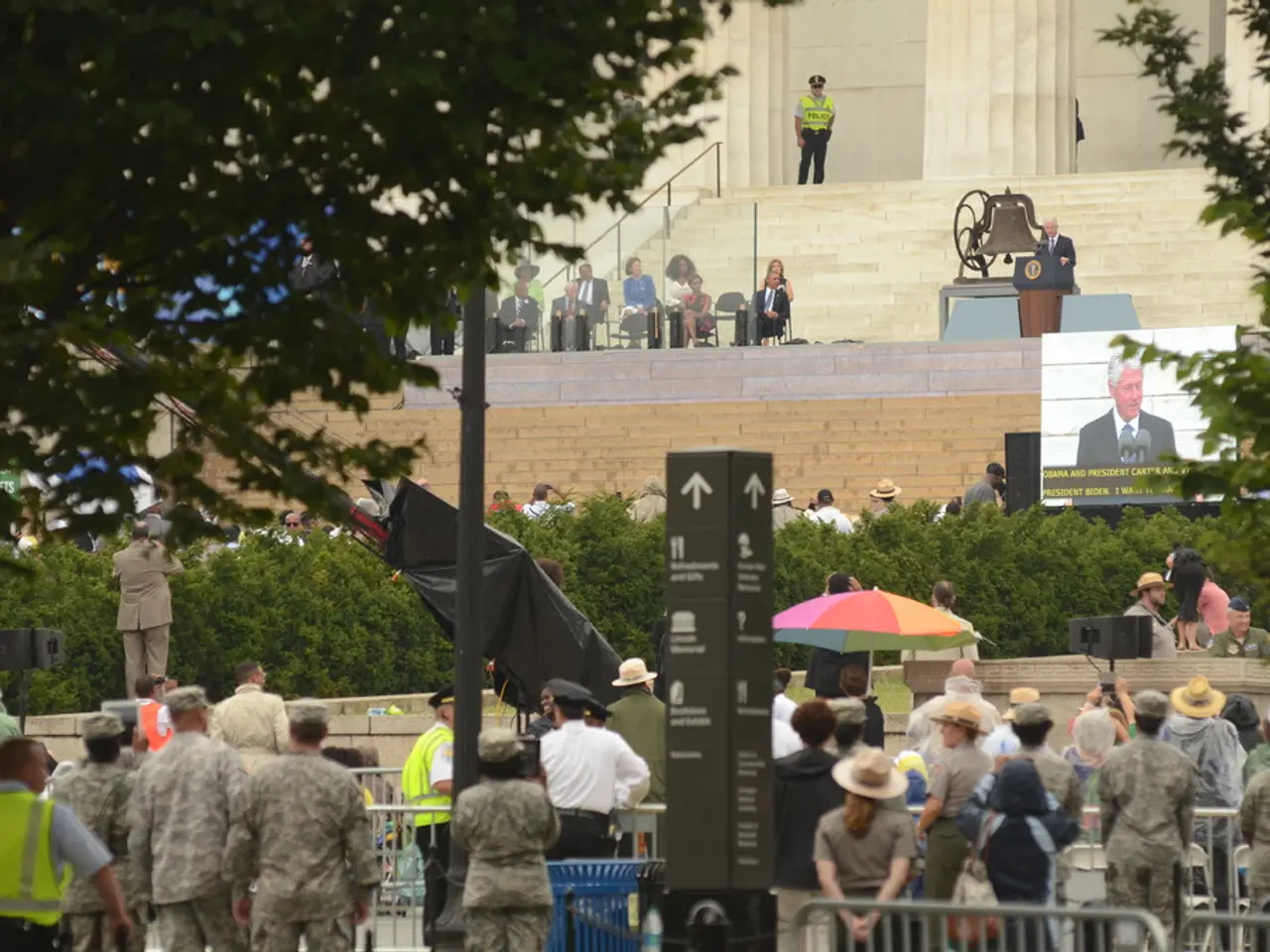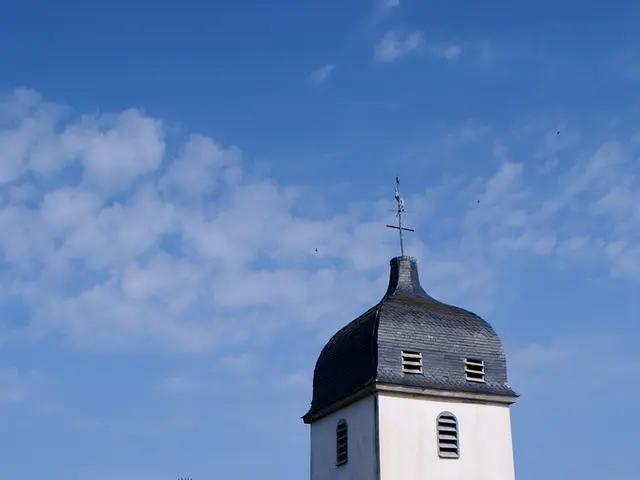What are the specific powers and actions allowed for the President of Ireland?
The President of Ireland, as the Head of State, holds a unique position in Irish politics. While their formal executive powers are largely ceremonial, the Constitution places few limitations on what they might say publicly, granting them significant speaking freedoms [1].
In essence, the President's powers and functions are exercisable and performable only on the advice of the Government [2]. This means that for key functions such as appointing the Taoiseach, government ministers, and judges, the President must act on government advice [1][5].
However, when it comes to expressing opinions on political or social matters, the President retains a degree of personal freedom. This freedom primarily lies in areas where the Constitution grants absolute discretion, rather than formal powers subject to government advice [1][5].
The President's ability to influence public discourse through speech is a reflection of their ceremonial role. They can nominate members to the Council of State, which advises the President on the exercise of certain functions [6]. They may also convene a meeting of either or both Houses of the Oireachtas, but any message must have the approval of the Government [7].
The President's role is to be visible in office, representing widely-held values, while remaining aloof from party politics and steering clear of the role of Government [8]. Few would dispute that Presidents should avoid coming into direct conflict with the Government or favoring one political party over another [9].
Examples of Presidents who have used their speaking freedoms effectively include Mary Robinson and Mary McAleese, who have highlighted causes, inspired people, built bridges, and mended fences [10].
It's worth noting that the President does not have a veto for bills, but must sign them within a specified time frame [11]. They may refer a bill to the Supreme Court to test its constitutionality, a power exercised 15 times in total [12].
The Constitution places very few restrictions on what the President might say, except where the President makes a formal address to either the Oireachtas or the Nation on a matter of national importance, which must first be approved by the Government [13].
The President does not have the power to shape how we make our laws or spend our public monies. A procedure under Article 27 allows Bills to be referred to a referendum prior to being signed into law, but this can only arise in highly specific circumstances [14].
Lastly, the President has the discretion to refuse to dissolve the Dáil, but has never exercised this power [15]. The President must be free to respond to criticisms of the manner in which they have exercised the powers and functions of the office [16].
In conclusion, while the President's formal powers are largely ceremonial and subject to government advice, their speaking freedoms allow them to influence public discourse and represent the nation in a symbolic capacity. The ideal President would be visible, embodying widely-held values, while remaining aloof from party politics and steering clear of the role of Government.
[1] O'Connell, D. (2016). The Presidency: An Introduction. In D. O'Connell (Ed.), The Irish Presidency: Law, Politics and Practice (pp. 1-30). Dublin: Four Courts Press. [2] Article 12.6 of the Constitution of Ireland. [3] Article 13.3 of the Constitution of Ireland. [4] Article 13.4 of the Constitution of Ireland. [5] Article 13.6 of the Constitution of Ireland. [6] Article 14.1 of the Constitution of Ireland. [7] Article 25.1 of the Constitution of Ireland. [8] Article 12.2 of the Constitution of Ireland. [9] Article 12.3 of the Constitution of Ireland. [10] O'Connell, D. (2016). The Presidency: An Introduction. In D. O'Connell (Ed.), The Irish Presidency: Law, Politics and Practice (pp. 31-50). Dublin: Four Courts Press. [11] Article 25.4 of the Constitution of Ireland. [12] O'Connell, D. (2016). The Presidency: An Introduction. In D. O'Connell (Ed.), The Irish Presidency: Law, Politics and Practice (pp. 51-67). Dublin: Four Courts Press. [13] Article 26.1 of the Constitution of Ireland. [14] Article 27 of the Constitution of Ireland. [15] Article 14.4 of the Constitution of Ireland. [16] Article 12.1 of the Constitution of Ireland.
This article does not represent or reflect the views of RTE. The views expressed in this piece are those of the author.
Read also:
- United States tariffs pose a threat to India, necessitating the recruitment of adept negotiators or strategists, similar to those who had influenced Trump's decisions.
- Weekly happenings in the German Federal Parliament (Bundestag)
- Southwest region's most popular posts, accompanied by an inquiry:
- Discussion between Putin and Trump in Alaska could potentially overshadow Ukraine's concerns








